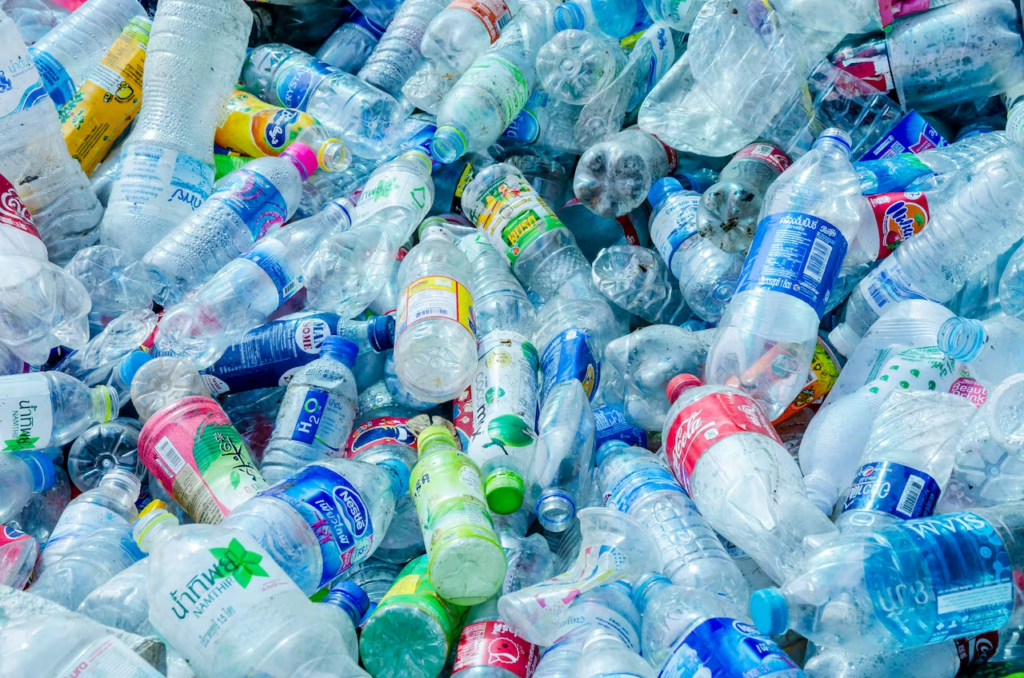Plastic bottles are harmful throughout their lifespan 2023
The PET plastic bottle was invented by DuPont engineer Nathaniel Wyeth in 1973. Since then, Coca-Cola, PepsiCo, and Nestlé have boosted output to over half a trillion bottles each year.
Most PET bottles—named for their polyethylene terephthalate plastic—are never recycled. Many wind up on beaches or in rivers, where they decay into ugly plastic shards that harm marine life. Blighted beaches are only the beginning. PET plastic bottles pollute throughout their entire cycle, according to Defend Our Health.
“Plastics have a terrible health burden on the population,” said Defend Our Health executive director Mike Belliveau. He called on beverage companies like Coca-Cola, the Break Free From Plastic coalition’s top plastic polluter for five years, to replace at least half of their plastic bottles with reusable and refillable containers by 2030.

Belliveau said the beverage sector must take responsibility for plastics’ supply chain implications.
The report opens with scattered PET plastic bottles releasing cancer-causing toxins and heavy metals. PET is advertised as “100% recyclable,” although only 30% of bottles are recycled. They’re discarded, transferred to landfills, or burnt, generating air pollution that disproportionately affects low-income and minority neighborhoods. Defend Our Health estimates that just one-third of the remaining 30% are recycled into new bottles. The remainder are discarded or “downcycled” into lower-quality plastic items like carpets.
Experts estimate recycling infrastructure to fall behind as global plastic garbage triples by 2060. Recent study suggests that recycled toys, culinary utensils, and other objects may accidentally contain harmful substances, putting consumers at danger.
While on the shelf, PET bottles leak chemicals. Independent research shows that most plastic bottles leech toxins into drinks. Antimony from antimony trioxide, a cancer-causing catalyst, speeds up PET plastic manufacture. Defend Our Health detected antimony in Diet Coke, Honest Tea, Dasani, and other Coca-Cola products above California’s safe drinking water level in 2022.
The paper covers feedstocks, PET’s chemical components. Monoethylene glycol, one of PET’s key constituents, releases 68,000 pounds of ethylene oxide into the air each year and is the country’s biggest source of 1,4-dioxane pollution.
Processing and refining oil and gas to generate plastic feedstocks like ethylene and para-xylene emits particulate matter, smog-causing volatile organic compounds, and aromatic hydrocarbons. Oil and gas production releases about 1,000 compounds, some of which may have health effects.
“We’re just barreling forward with a lot of these chemicals without understanding the implications for human health,” said Roopa Krithivasan, director of research at Defend Our Health and writer of the paper. She stated poor and minority populations near fossil fuel extraction sites, PET manufacturers, and trash incinerators bear the brunt of chemical contamination.
Defend Our Health reports that approximately two-thirds of individuals at risk of severe cancer from living within six miles of ethylene oxide emissions from petrochemical plants are persons of color.
“Our future is in the crosshairs,” Yvette Arellano, executive director of Houston-based environmental justice nonprofit Fenceline Watch, told reporters during a report press conference on Monday.
“As women of color in extreme-right Southern states captured by oil interests, we’re disenfranchised and disproportionately affected. Many, including myself, are diagnosed with infertility, and kids are impacted in the womb even before their first breath and can suffer neurological, immunological, and developmental disorders.

Belliveau said the EPA identified these inequalities well but “terrible” at rectifying them. He suggested imposing a federal limit for 1,4-dioxane in drinking water, tightening ethylene oxide pollution limits, and regulating other plastic-related pollutants. Companies might help by voluntarily replacing dangerous chemical additions with safer ones.
Request for EPA comment was not answered in time.
Belliveau wants less plastic bottles manufactured overall. Green organizations believe the commercial sector must join states like California in eliminating single-use plastics and replacing them with reusable solutions like soda fountains and bottle refill stations.
Defend Our Health wants soda producers like Coca-Cola to offer at least 50% of their beverages in recyclable or refillable packaging by 2030, double their present aim.
Coke may be reversing its reuse pledge: In its 2022 sustainability report, the business said that refillable packaging made up 14% of its sales, down from 16% the year before. Oceana estimates that Coca-Cola produced 5.8 billion more single-use bottles over the previous two years, replacing reusable packaging.
“Coca-Cola has a history of not meeting its promises,” Oceana’s senior vice president of strategic initiatives Matt Littlejohn told Grist. He said the Defend Our Health study, which Oceana was not involved in, shows how vital it is for Coca-Cola to meet and surpass its objectives “not only for the ocean’s health, but for all of our health as well.”
